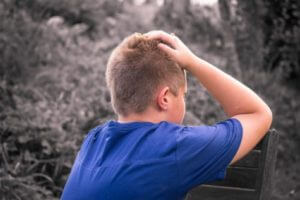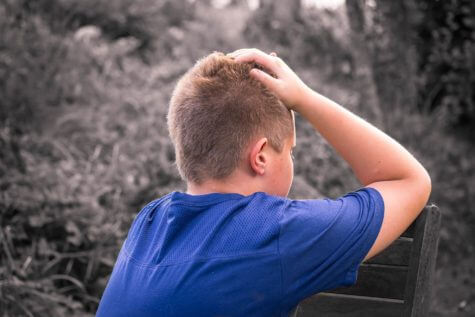LOS ANGELES — Overweight youths experience a disproportionate number of problems socially and find themselves battling more “frenemies” when compared to more svelte kids, a new study finds.
Researchers at the University of Southern California (USC) assessed surveys of 504 preteens in the Netherlands, hoping to determine how one’s weight impacted their school-related social interactions. Data was extracted from the Tracking Adolescents’ Individual Lives Survey which monitors the psychological, social, and physical development of adolescents and young adults.
The children were instructed to list their best friends as well as their enemies when completing the survey.

Overall, the researchers found that children who were deemed to be overweight — empirically measured by BMI — were more likely to have non-reciprocal friendships, be disliked by peers, and be excluded from companionship altogether. They observed that most children were listed by five friends on the survey and two enemies, but overweight children were more often only listed by four friends while making the “enemy” list of three peers.
“Our finding is alarming because if we continue to have social environments where fat shaming is the norm, these kids will continue to be ostracized,” warns lead researcher Kayla de la Haye, an assistant preventive medicine professor, in a university news release.
These negative social interactions impact kids mentally, socially, and physically, the researchers argue, a phenomenon made manifest by a few other findings.
First and foremost, ostracized kids have a heightened “risk of loneliness, depression, poor eating habits and illness,” says de la Haye.
In addition, overweight children tend to have more enemies in school, evidenced by the fact that they were found to be 1.2 times as likely to dislike their fellow students as a preteen with average measurements.
While overweight kids reported having the same number of friends as children of average weight, these friendships weren’t always reciprocated by the receiving party.
Perhaps most worryingly, heftier kids were 1.7 times more likely to be disliked by peers than an average student.
“This social environment characterized by fewer friendships and more antipathies is likely to put overweight youth at increased risk for psychosocial maladjustment,” the authors write. “The resulting social isolation may also promote unhealthy behaviors, such as excessive food intake and decreased participation in sports and physical activities, which can lead to further weight gain and thus a cycle of poor physical and social outcomes.”
Considering the epidemic of obesity worldwide, this issue does not look like it will soon abate.
There are 42 million obese or overweight children worldwide, and in the U.S., about one in five school-aged children falls into such a category.
The researchers at USC hope that their study can shine some light on a commonly-overlooked problem that carries a lot of stigma on the playground.
The study’s findings were published in the journal PLOS One.
